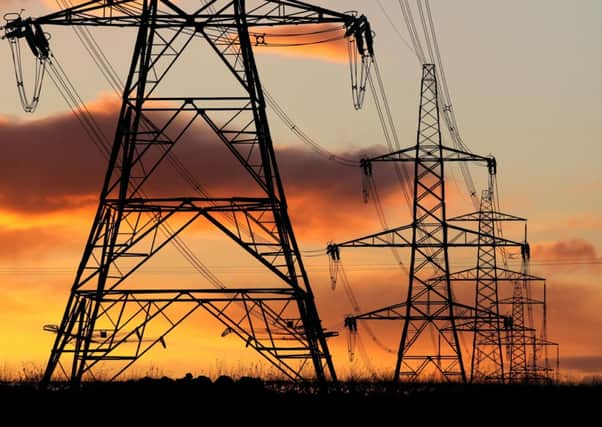Energy firm’s smart move could see cheaper bills for consumers


British company Ovo Energy has just launched the UK’s first full-service, smart, pay-as-you-go (PAYG) energy platform, Smart PAYG+, which offers the cheapest pre-payment tariff in the country.
Around one in six households in Yorkshire are on pre-payment meters and Ovo – the only energy provider recommended by Which? – claims they are paying an average of £72 too much for their energy, compared with the average Big 6 standard pre-payment tariff.
Advertisement
Hide AdAdvertisement
Hide AdConventional pre-payment meters operate with a token, key or card, which has to be “recharged” at a Post Office or local shop, meaning that customers sometimes have to make the trek to top up.
Smart PAYG+ includes a number of features, including alerts and notifications, such as a credit countdown that updates every 24 hours, so that customers can manage all elements of their energy supply, from topping up to monitoring usage, via a smartphone or desktop computer.
It also has a built-in non-disconnect period, which means that if a customer runs out of energy between 8pm and 8am on weekdays, or between Friday night and Monday morning, they won’t get cut off even if they have run out of paid-for energy.
The tariffs have also been lowered to more closely reflect wholesale prices and the operational efficiencies achieved through the company’s use of smart technology.
Advertisement
Hide AdAdvertisement
Hide AdJustin Cockerill, managing director of OVO Smart PAYG, said: “We’re putting the power into the customers’ hands and giving them unprecedented control and convenience over the cheapest possible energy supply.”
Pre-payment meters are often, although not exclusively, used by customers with modest incomes. They are often installed by landlords to prevent tenant default, and in the homes of people who owe money to the energy company.
The initiative has therefore been welcomed by campaigners against fuel poverty, who have applauded the use of technology to supply more vulnerable consumers with cheaper power, and to give them more control over their usage.
Derek Lickorish, chairman of National Energy Action, said: “We welcome innovation like this that helps customers, especially those on pre-payment meters, to realise the benefits of Smart meters and bring an end to poor service.
Advertisement
Hide AdAdvertisement
Hide Ad“For too long these customers have been forgotten; well now it’s time to forget the out-dated technology and give these, often vulnerable, customers the service and experience they deserve.”
Even Labour MP Frank Field, a veteran social justice campaigner, has given it the nod.
“I applaud Ovo Energy for its efforts to act on the concerns we expressed in our cross-party inquiry on hunger,” he said.
“I hope this will be the first of many steps taken by the energy companies to ease some of the pressure on poor families relying on pay-as-you-go meters.”
Advertisement
Hide AdAdvertisement
Hide AdOVO, which dedicated 60 of its 800 employees to the creation of Smart PAYG+, is accompanying the launch with a new marketing campaign across Yorkshire to show consumers how they could save money with the tagline “switch to smart”.
“It will be an integrated campaign, incorporating TV and radio, and will target certain areas, including Yorkshire, where a lot of outdoor advertising is planned,” said Mr Cockerill.
“If we can focus on Yorkshire and bring it to life there, we’re hoping to get a really good response. If you don’t see the advertising in Yorkshire I’d be disappointed.”
The company is confident the investment will pay off. Around 11 million people in the UK use pre-payment meters, so the market’s potential is huge. “It’s difficult at this stage to know where we can get to,” said Mr Cockerill.
The good and bad side to meters
Advertisement
Hide AdAdvertisement
Hide AdPre-payment meters allow customers to pay for their energy as they use it.
Conventional ones use a token, key or smart card which the customer charges up at local shops.
The advantage to the customer is that they can keep tabs on their spending, but the downside is that pre-payment meters can be an expensive option – but often the only one open to their users, who may be in debt, or in rented accommodation.
Other disadvantages include the danger of losing or damaging the key or smart-card, and the inconvenience of having to go and top it up. This is one reason why the smartphone app option offered by Ovo is an increasingly popular option.